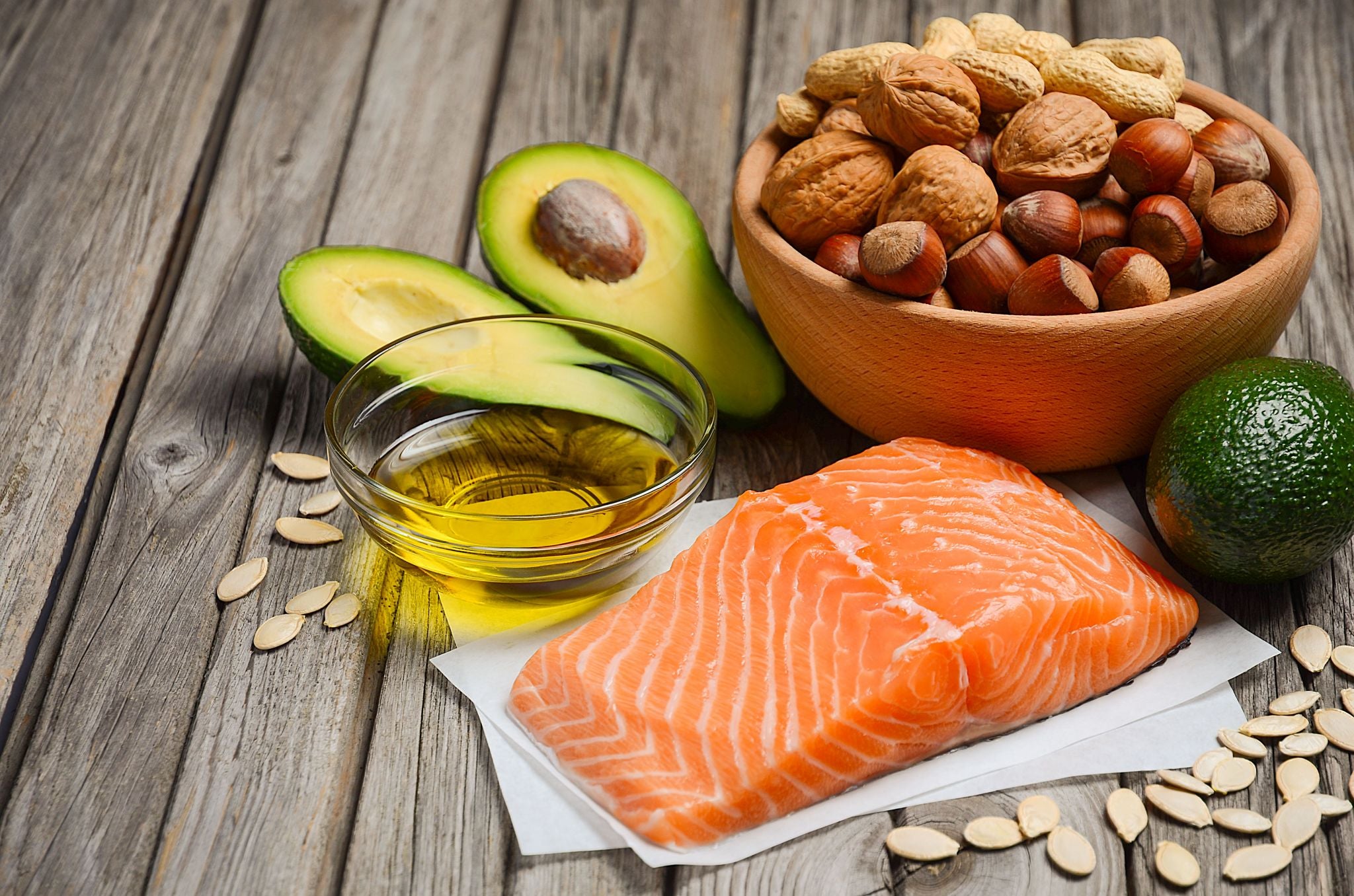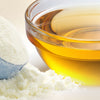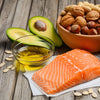The Ketogenic Diet: Pros and Cons of a Low-Carb/High-Fat Way of Eating


The ketogenic diet is one of the hottest diet trends right now. It’s being hailed as a way of eating for sustainable weight loss and improvements in physical and mental health. Research shows the keto diet may also be beneficial to patients with diabetes, cancer, and Alzheimer’s disease. [1, 8, 9]
But it has its share of critics as well. The keto diet is sometimes referred to as “the bacon and butter diet” because it calls for 75% of daily calories to come from fat. Keto followers are gobbling up bacon, steak, sausage, and chicken (skin and all). They’re adding butter to their morning coffee. They’re drowning their salads with ranch dressing.
So, is the keto diet good or bad for your health? Let’s examine the pros and cons so you can decide whether it’s right for you.
How the Ketogenic Diet Works
For the pros and cons to make sense, let’s first cover exactly what the ketogenic diet is. The keto diet was initially developed as a therapeutic way to treat seizures in patients with epilepsy. The keto diet is made up of 75% fat, 20% protein, and 5% carbohydrates. This combination enables your body to enter a state of ketosis, where the body switches from burning carbs for fuel, to burning fat for fuel.
Pros of Keto
Supports weight loss. When your body enters ketosis, it goes into fat-burning mode, which supports weight loss. Cutting carbs also causes your body to retain less water, which can lead to weight loss. [2, 4, 6, 7, 9]
Suppresses appetite/enhances satiety. One of the best things about the keto diet is that you won’t feel hungry. Say goodbye to hunger pangs. The high amount of fats in the keto diet minimizes carb cravings, provides steady energy for hours, and suppresses appetite. [2, 6]
Lowers cholesterol. Studies show the keto diet can improve “good” cholesterol (HDL) and lower “bad” cholesterol (LDL). Eating fat increases blood levels of HDL. The higher your levels of HDL, the lower your risk of heart disease. But that’s not all. Eating low-carb can also change your LDL cholesterol, altering it from “bad” to “benign” cholesterol. It does this by turning LDL particles from small (high risk of heart disease) to large (low risk of heart disease) while also decreasing the number of LDL particles in the bloodstream. [2, 3, 6, 9, 10, 11]
Reduces risk for heart disease. Reducing carb intake can lower blood triglycerides, which are fat molecules in the blood. High levels of blood triglycerides can put you at higher risk for heart disease. [3, 4, 6, 7, 9]
Lowers blood pressure. Research shows eating a low-carb diet can have positive impacts on blood pressure. Hypertension is a risk factor for many diseases, including heart disease, stroke, and kidney failure. [4, 6, 7, 9]
Reduces insulin levels and insulin resistance. Studies show the keto diet can reduce blood sugar and insulin fluctuations due to reduced carbohydrate consumption. Better insulin control can also help improve the associated metabolic disorders and symptoms linked to high insulin and blood sugar. [2, 4, 9]
Improves cognitive function. The keto diet has been used for decades to treat epilepsy in children. And it is currently being studied for its potential beneficial impacts on other neurological diseases, such as Alzheimer’s and Parkinson’s. [1, 12]
Enhances mood, mental focus, and sleep. After a few days of cutting carbs, many keto dieters report feeling more alert, being in better moods, and needing less sleep. [12, 13]
Boosts energy levels. The sluggishness and lethargy you feel after a heavy carb-filled meal is due to the insulin spike. Eating a high-fat diet provides steady energy and helps you avoid crashes that are associated with eating a high-carb diet. [13]
Cons of Keto
Requires an adaptation process. Getting keto adapted can take one to two weeks and the transition can be uncomfortable for some people. The “Keto Flu” is commonly used to describe flu-like symptoms associated with the transition process: headaches, fatigue, nausea, etc. Due to restricted carb intake, your body is not retaining as much water so loss of electrolytes is common. This can easily be rectified with taking vitamin supplements or exogenous ketones, such as BHB. [14]
May cause irregularity. Dramatically increasing your fat intake while drastically cutting your carb intake may cause gastrointestinal issues, ranging from constipation to diarrhea. This is something that should resolve itself when your body gets fat-adapted. [5]
Bans or puts restrictive limits on certain food groups. Some people simply don’t like banning entire food groups, and the keto diet requires you to give up all forms of sugar (no more candy, ice cream, and donuts), and popular carbs such as bread, rice, and pasta (no more pizza and burgers). Keto also limits most fruits due to the fructose content, as well as starchy vegetables such as sweet potatoes and carrots.
May cause high cholesterol for those who are genetically predisposed. While most people will see their cholesterol fall along with their weight, there are some that may see the opposite due to the meat-heavy nature of the diet. This is typically a genetic predisposition and means the keto diet is not right for everyone. [11]
Makes social gatherings harder. Dining out at restaurants will require more planning and research due to hidden carbs on restaurant menus. Attending birthday parties, weddings, and other social events will require more self-discipline.
Now that you have a better understanding of the pros and cons of the ketogenic diet, here are a few other resources that can help you make a decision about whether this way of eating is right for you. When starting a new diet, consult your doctor prior to making any significant changes, especially if you take any prescription medication.
The Top 10 Things You Need to Know Before Going Keto: Thinking about giving the ketogenic diet a try? People are using it not only to lose weight, but to feel more energized, sleep better, and improve their mental focus. It’s not hype. The keto diet is a top health trend because it works. But before you go all in, here are the top 10 things you should know.
PrimaForce Recipes: We’ve developed each recipe to help you enjoy a keto lifestyle. Many of our recipes also fit perfectly into most Paleo and other low-carb/high-fat (LCHF) diets. Use them to help lose weight, maintain your form, feel more energetic, and supercharge your body and your brain.
PrimaForce Products: Starting a new diet can be hard so PrimaForce wants to make the transition as easy as possible. PrimaForce supplements are designed to simplify meal planning, help you lose weight, and support ketosis. PrimaForce KetoShakes is a delicious source of healthy fat macros and helps boost ketone production. PrimaForce BHBs replenish your electrolytes, support ketosis, and suppress your appetite. These two keto products work together to help you lose weight, elevate energy levels, and improve physical and mental performance.
References:
[1] https://www.ncbi.nlm.nih.gov/pmc/articles/PMC2367001/: Neuroprotective and disease-modifying effects of the ketogenic diet
[2] http://www.nejm.org/doi/full/10.1056/NEJMoa022637: A Low-Carbohydrate as Compared with a Low-Fat Diet in Severe Obesity
[3] https://www.ncbi.nlm.nih.gov/pubmed/23680948: Treatment of diabetes and diabetic complications with a ketogenic diet.
[4] https://www.ncbi.nlm.nih.gov/pubmed/28534852: Effects of Ketogenic Diets on Cardiovascular Risk Factors: Evidence from Animal and Human Studies.
[5] https://www.livestrong.com/article/509998-do-low-carbs-affect-bowel-movements/
[6] https://jamanetwork.com/journals/jamainternalmedicine/fullarticle/217514: The National Cholesterol Education Program Diet vs a Diet Lower in Carbohydrates and Higher in Protein and Monounsaturated Fat
[7] https://www.ncbi.nlm.nih.gov/pubmed/12761365: A randomized trial of a low-carbohydrate diet for obesity.
[8] https://www.ncbi.nlm.nih.gov/pubmed/25666556: Mitochondria: The ketogenic diet--A metabolism-based therapy.
[9] https://www.ncbi.nlm.nih.gov/pubmed/17341711: Comparison of the Atkins, Zone, Ornish, and LEARN diets for change in weight and related risk factors among overweight premenopausal women: the A TO Z Weight Loss Study: a randomized trial.
[10] http://atvb.ahajournals.org/content/12/2/187.short: Low density lipoprotein particle size and coronary artery disease.
[11] https://academic.oup.com/jn/article/136/2/384/4664306: Carbohydrate Restriction Alters Lipoprotein Metabolism by Modifying VLDL, LDL, and HDL Subfraction Distribution and Size in Overweight Men
[12] https://www.ncbi.nlm.nih.gov/pubmed/29046155: Impact of dietary fats on brain functions.
[13] https://www.ncbi.nlm.nih.gov/pubmed/28706467: Ketogenic diet benefits body composition and well-being but not performance in a pilot case study of New Zealand endurance athletes.
[14] https://www.ncbi.nlm.nih.gov/pubmed/28074888#cm28074888_52891: A review of the carbohydrate-insulin model of obesity.




